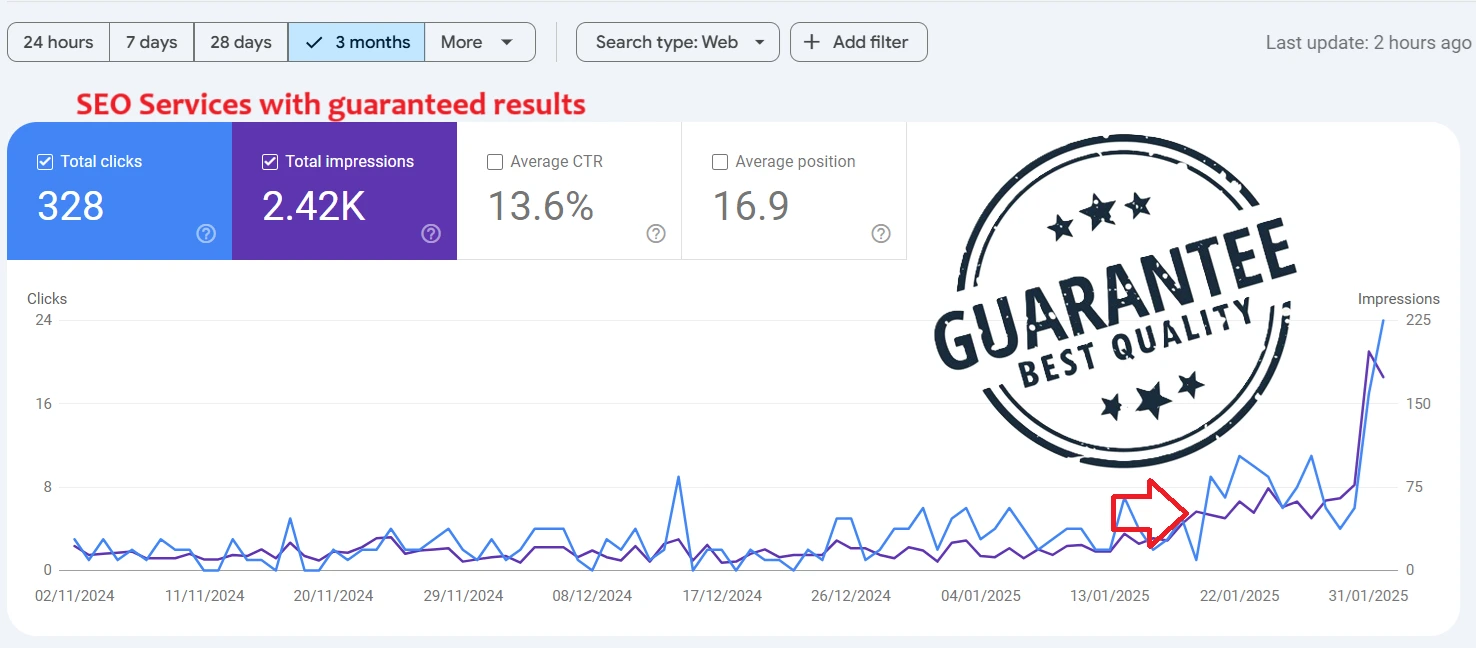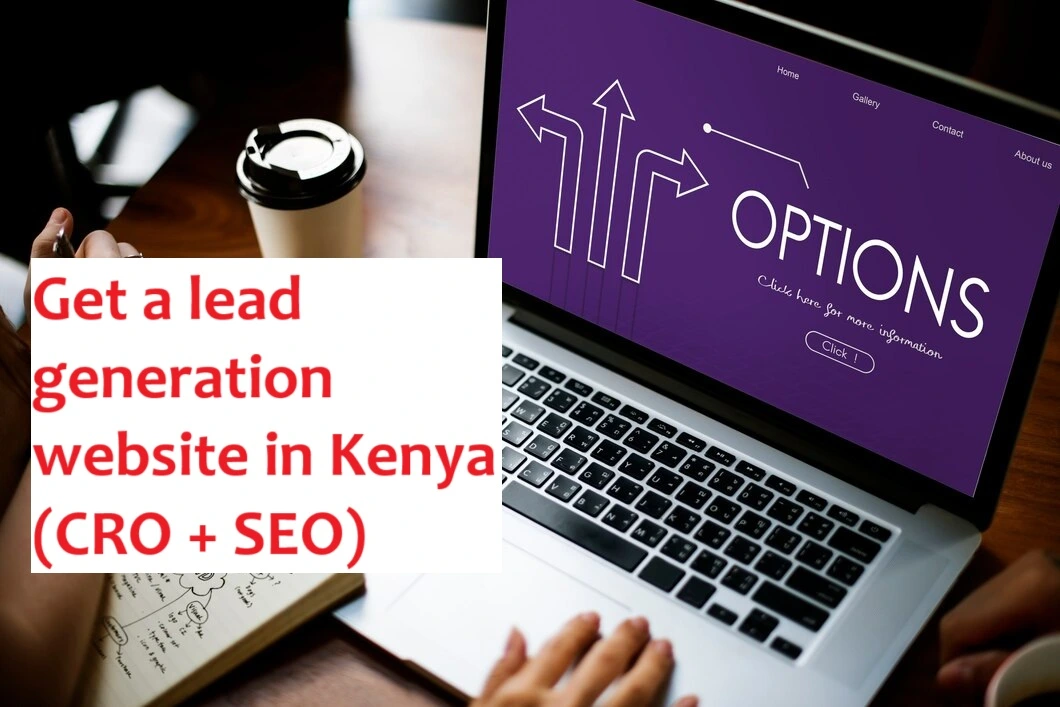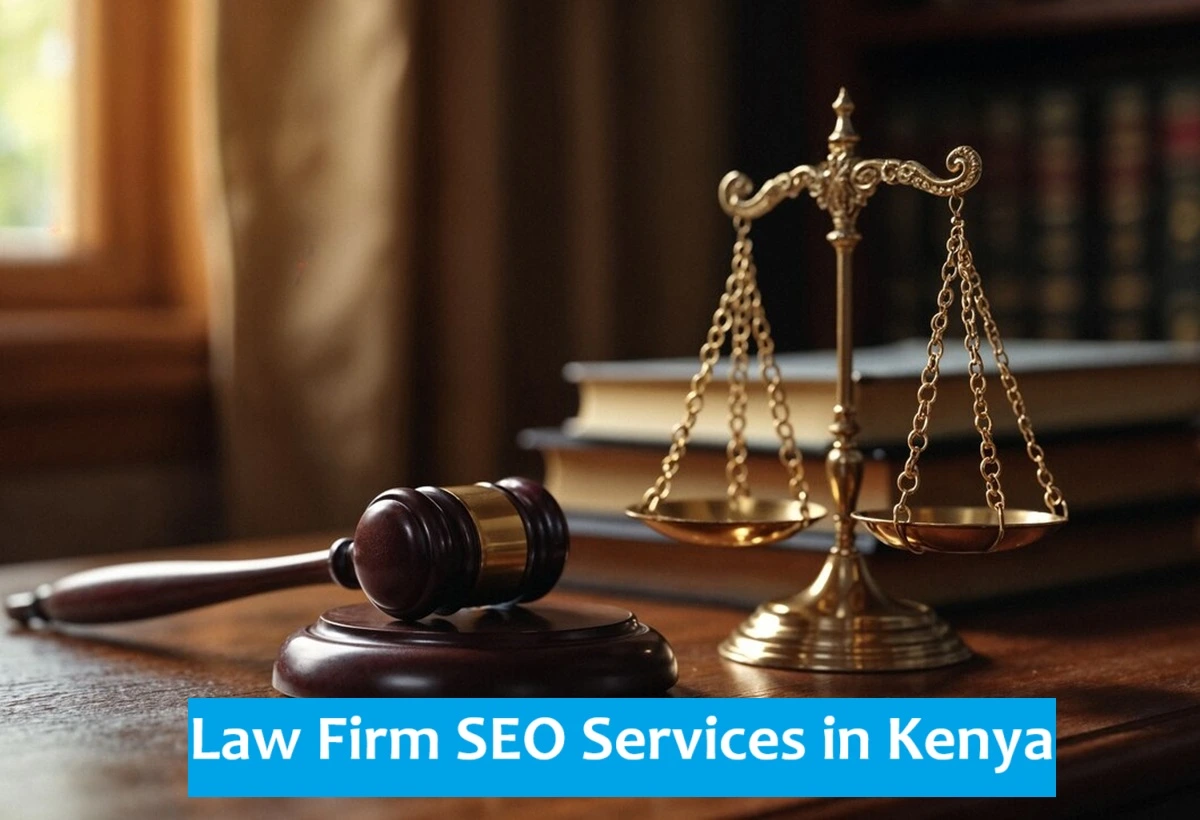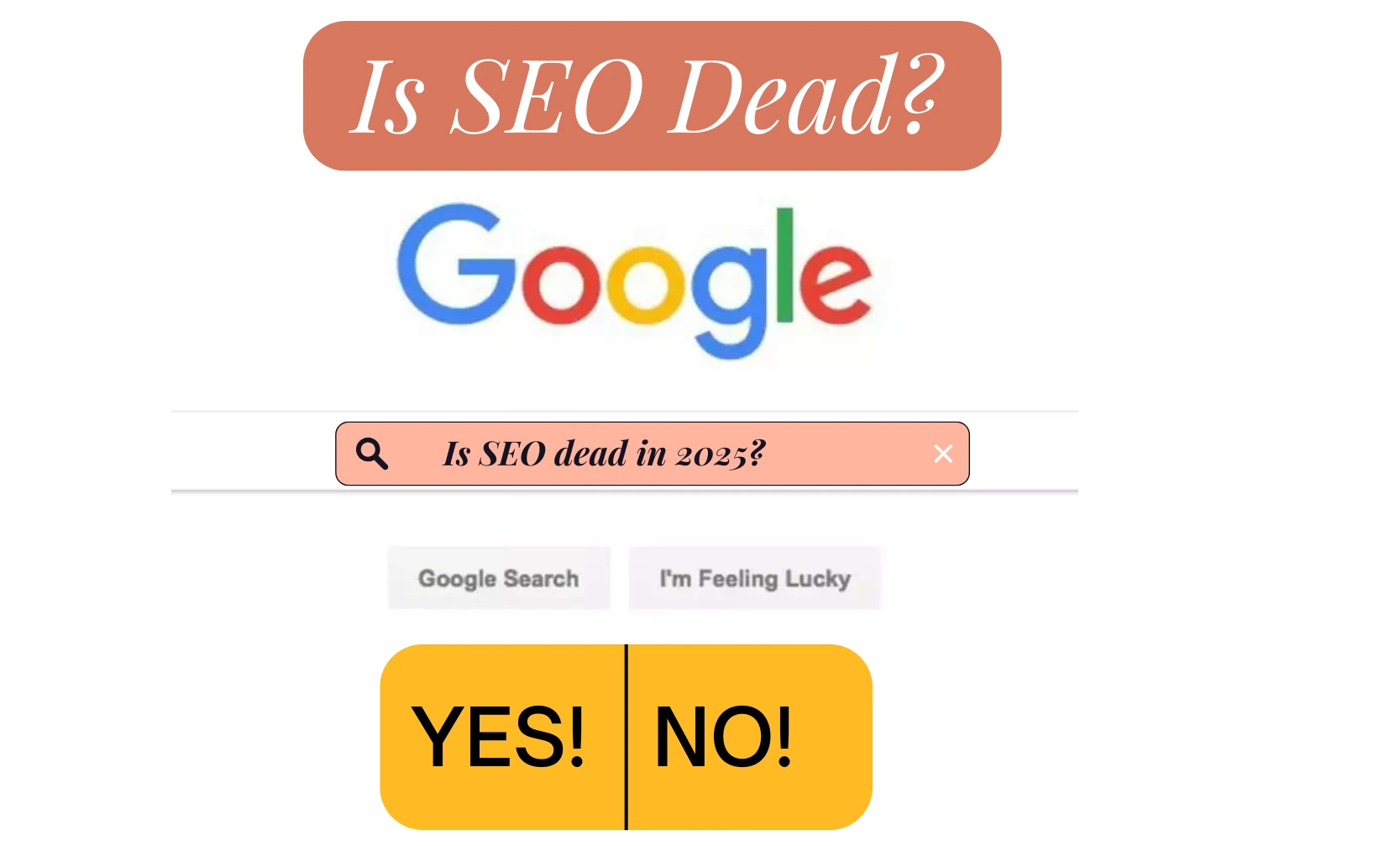Backlink building is the process of acquiring hyperlinks from other websites to your own, creating pathways that guide users and search engines to your site.
These backlinks act as "votes of confidence," signaling to search engines like Google that your site is credible and authoritative. Backlink building in Kenya is a key strategy for improving your website's visibility and ranking in search results.
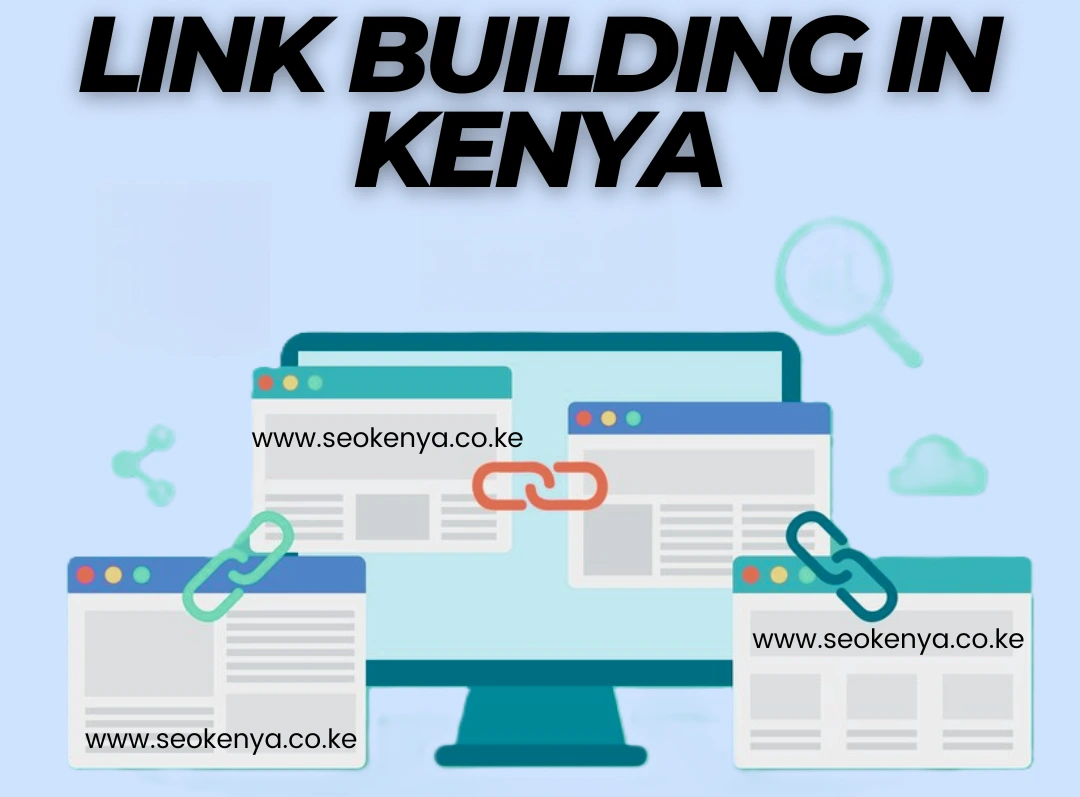
Why is it important? Backlinks not only boost your search engine ranking but also drive referral traffic and build brand authority in your industry.
Foundational Link Building (Month 1)
Month 1 is all about laying the groundwork. At this stage, your site might not have much traffic—or any traffic at all—but that’s perfectly fine.
Foundational link building focuses on creating a natural link profile that signals to search engines like Google that your website is legitimate and worth indexing.
These links aren’t meant to skyrocket your rankings overnight. Instead, they build trust and set the stage for more impactful strategies later on.
Steps to Build Foundational Backlinks in Kenya
1. Social Profiles
Start by creating social profiles for your business on major platforms like Facebook, Instagram, Twitter, and LinkedIn.
Make sure you fill out your profiles completely—add your business name, logo, description, and, most importantly, a link to your website. For a more robust setup, create profiles on secondary platforms like YouTube, Pinterest, and even platforms like Vimeo.
These links are simple to set up and tell search engines that your brand exists across the web.
2. Social Signals
Social signals are created when you share your website’s links on social media.
For example, post your homepage link on your Facebook page or share a blog post on LinkedIn. If possible, encourage likes, shares, or comments on these posts, as engagement adds a layer of legitimacy.
Even basic activity like sharing your website on Twitter or Reddit can bring search engine bots crawling to your site.
3. Local Citations
For businesses operating in Kenya, citations are a must. Submit your business details (Name, Address, Phone) to directories like Yellow Pages Kenya, Kenya Business Directory, and Google My Business.
These listings aren’t just backlinks; they help build credibility and improve local search visibility. Ensure that all your information—business name, address, phone number—is consistent across all platforms.
4. Press Releases
Distribute press releases to local and international news platforms. For instance, announce your business launch, new services, or milestones.
Affordable press release services can get you backlinks from dozens of news sites. While these links might not directly influence your rankings, they add to your site’s trustworthiness.
5. Niche Directories
If you’re in a specific industry, like tourism, real estate, or tech, seek out niche directories relevant to Kenya.
For example, if you’re in travel, platforms like Magical Kenya or regional tour directories can provide valuable backlinks. While some of these might charge a fee, the investment can be worth it for the exposure.
You can get an SEO agency in Kenya like SEO Kenya Limited to help you this task at affordable SEO cost.
Best Practices when doing Foundational Linking
- Link to your homepage only: During this phase, all links should point to your homepage. This creates a natural starting point for search engines.
- Use natural anchor text: Stick to branded anchors (e.g., “YourBusiness”), URL anchors (e.g., “www.yourbusiness.co.ke”), or generic anchors (e.g., “click here”).
Avoid exact match keywords, as they can seem unnatural at this stage.
Optional Additions for Link Diversity
If you want to go the extra mile, consider adding these:
- Blog Comments and Forum Posts: Leave meaningful comments or discussions on blogs and forums related to your niche. Include a natural backlink to your homepage.
- Web 2.0 Sites: Create mini-websites on platforms like Blogspot or WordPress.com and link back to your main site. Keep this minimal—5 to 10 sites max—and use them naturally.
Building Authority with Guest Posts and Link Insertions (Month 2)
In Month 2, the focus shifts from foundational links to building authority. By now, you’ve laid a natural groundwork with social profiles, citations, and basic links.
It’s time to start creating backlinks that carry more weight and directly impact your rankings.
This phase introduces guest posts, link insertions, and HARO (Help a Reporter Out) backlinks, which are more powerful and relevant to your niche.
Steps to Build Guest Post Backlinks in Kenya
1. Guest Posts Guest posting involves contributing high-quality content to other websites in your niche or related industries. For example, if you are in mobile device selling industry, you can get a guest post on an electronics ecommerce website.
The process includes reaching out to blog owners, pitching relevant topics, and including a backlink to your site within the content.
For example, if you’re in the travel industry in Kenya, write a guest post for a blog that covers African travel destinations, linking back to your site.
Steps:
- Identify blogs in your niche that accept guest posts.
- Reach out with a personalized email offering unique content ideas.
- Write a detailed, engaging article with natural links to your site.
Pro Tip: Keep the anchor text branded or generic (e.g., “visit our site”) to maintain a natural profile.
2. Link Insertions (Niche Edits) Link insertions, also known as niche edits, involve placing your link into existing content on high-authority websites.
This method is quicker than guest posting because the content already exists; you’re simply adding value by including your link.
Steps:
- Find blog posts or articles relevant to your niche using tools like Ahrefs or Google.
- Reach out to the site owner, explaining how your link enhances their content.
- Negotiate for a backlink, often for a small fee.
Example: If you run a Kenyan tech startup, you could insert a link into an existing article about innovation in Africa.
3. HARO Backlinks HARO backlinks involve answering questions from journalists or bloggers who are looking for expert insights.
This strategy works particularly well for businesses with unique expertise or stories.
Steps:
- Sign up for a free HARO account.
- Monitor daily queries relevant to your industry.
- Respond with valuable insights, including a link to your site.
Pro Tip: Journalists love unique, data-backed responses, so try to provide statistics or case studies related to your Kenyan market.
Best Practices when Guest Posting in Kenya
- Target the homepage (Mostly): During Month 2, the majority of your backlinks should still point to your homepage. This keeps your profile natural while boosting site authority.
- Stick to natural anchors: Continue using branded and generic anchors (e.g., “learn more”) while sparingly introducing partial match keywords related to your niche.
- Focus on quality over quantity: A handful of high-quality guest posts or link insertions are far more impactful than dozens of low-quality links.
Scaling and Diversifying Link Building (Month 3 onwards)
By Month 3, your website should begin to gain traction, with some pages appearing in search results and initial traffic trickling in.
At this stage, it’s time to scale your link-building efforts, diversify your backlink profile, and start targeting more specific pages on your site beyond the homepage.
Steps to Diversity Backlinks in Kenya
1. Continue Guest Posts and Link Insertions Guest posts and link insertions remain the backbone of your strategy.
The difference in Month 3 is that you can start shifting some of these links to inner pages, such as service pages, blog posts, or product categories.
Steps:
- Maintain the same outreach process as before but tailor the target pages.
- For example, if your Kenyan business offers safari tours, link guest posts to specific tour pages rather than just your homepage.
- Ensure the content of guest posts aligns with the page you’re linking to for contextual relevance.
Pro Tip: Diversify anchor text further by introducing more specific partial match keywords. For instance, instead of “learn more,” use “Kenya safari packages” or “affordable Kenyan safaris.”
2. HARO for niche content Keep utilizing HARO but refine your submissions to target niche-specific content queries.
Journalists often prefer contributions from established websites, so the backlinks you secure in this phase are likely to hold more weight.
Pro Tip: Share unique data or insights about Kenya’s market, culture, or industry trends. It increases the likelihood of getting picked by journalists covering topics about Africa or global business trends.
3. Link Bait and Supporting Content Create link bait articles—content designed specifically to attract backlinks. These could include:
- Data-rich studies on Kenya’s business landscape.
- Lists, such as “Top 10 National Parks in Kenya.”
- Guides like “How to Start a Small Business in Nairobi.”
Use these pages as primary targets for backlinks and strategically link them to your key service or product pages.
For instance, an article on “Kenyan Safari Tips” could internally link to your safari booking page.
4. Begin using exact match anchors sparingly With traffic increasing, it’s safer to introduce exact match anchors into your strategy.
These are anchors that precisely match the keywords you want to rank for.
Example:
- Anchor: “Kenya safari tours.”
- Target Page: Your safari tour booking page.
Pro Tip: Keep the percentage of exact match anchors low—around 5-10% of your overall anchor profile—to avoid triggering penalties.
How to Distribute Your Backlinks
As your site grows, you’ll balance links between your homepage and inner pages.
Here is my suggested ratio based on your site’s progress:
- Homepage: ~70% of links in Month 3, decreasing to ~50% as the site matures.
- Inner Pages (e.g., service pages, blog posts): ~30% initially, increasing to ~50% as the site gains authority.
This approach ensures your backlink profile remains natural while building authority across multiple site sections.
Internal Linking and Content Clusters
Internal linking is critical at this stage. It helps spread the “link juice” from high-authority backlinks across your website.
Here is what I suggest you should focus on:
- Adding internal links from newly created blog posts to key service pages.
- Building content clusters around main topics. For instance, if you’re in the hospitality industry, create a series of posts about “Top Kenyan Hotels,” “Travel Tips in Kenya,” and “Budget Safaris,” all linking to your hotel booking page.
Ready to take your link-building strategy to the next level? Don’t leave your SEO success to chance—partner with professionals who understand the Kenyan market.
Contact us today for a personalized link-building plan that matches your business needs.
